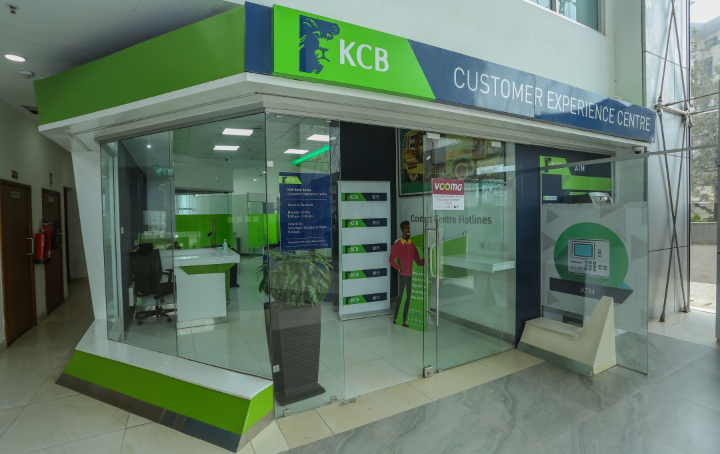KCB Bank, one of East Africa’s largest commercial banks, is involved in a legal dispute in Uganda after a client, Tirupati Development (U) Limited, filed a lawsuit accusing the bank of breach of contract, negligence, fraud, and money laundering.
The case, which is being heard at the High Court of Uganda’s Civil Division in Kampala, has drawn attention due to the serious nature of the allegations.
Tirupati Development claims that KCB Bank Uganda and KCB Bank Kenya, from whom it secured a loan of US$7,000,000 in 2012, created unauthorized bank accounts in its name and used them for illegal activities, including money laundering.
The plaintiff’s lawyers, Aegis Advocates and Kirunda & Wasige Advocates, submitted that in August 2016, KCB Bank opened and operated two US Dollar-denominated loan accounts without Tirupati’s consent or knowledge.
These accounts were with KCB Bank Kenya (account number 1059906732) and KCB Bank Uganda (account number 2150226057).
In January 2017, KCB Bank Uganda allegedly opened yet another unauthorized US Dollar account (number 2290351628) in Tirupati’s name.
According to the plaintiff, there was no coherent explanation from KCB Bank as to why these accounts were created.
Despite repeated demands for reconciliation of accounts, clarity on the loan repayment status, and bank statements, KCB Bank failed to provide the necessary documentation.
This lack of transparency, Tirupati claims, hampered their ability to meet loan obligations.
Tirupati believes that KCB Bank used these unauthorized accounts to launder money, putting the company and its directors at risk of prosecution for money laundering.
The company further alleges that KCB Bank failed in its responsibility to manage the risk of financial crime and IT fraud by maintaining separate ledgers for the accounts.
This, they say, made it difficult to trace the audit trail and avoid scrutiny by regulators and law enforcement in both Uganda and Kenya.
The plaintiff contends that between 2014 and 2021, KCB Bank facilitated unauthorized transactions through these accounts, amounting to US$79,900,000 and 62 transactions totaling UGX 315,992,747.
These transactions, according to Tirupati, had no connection to the company’s business operations, yet appeared under its name, further raising suspicions of money laundering.
Tirupati claims that these activities continue to this day, exposing the company, its shareholders, and directors to serious legal and financial consequences.
The plaintiff asserts that KCB Bank’s actions could result in accusations of involvement in illicit activities, including terrorist financing, corruption, or money laundering related to drug, child, or sex trafficking.
Tirupati contends that the bank’s misuse of its accounts poses a threat to the company’s entire business enterprise.
In the lawsuit, Tirupati accuses KCB Bank of breaching the loan contract, engaging in fraudulent practices, and neglecting its fiduciary duties.
The plaintiff demands that the bank return 20 certificates of title used as collateral for the loan and account for all misappropriated sums, with interest.
Additionally, Tirupati is calling for the court to declare that KCB Bank engaged in money laundering, impose fines, and award general damages and the costs of the suit.
Another aspect of the case involves the disbursement of the loan itself.
While the loan agreement was for US$7,000,000, KCB Bank only disbursed US$6,990,000.
The bank charged a loan negotiation fee of US$35,000, which Tirupati argues was irregular, as it exceeded the agreed-upon amount, and no breakdown was provided to justify the charge.
Tirupati’s lawsuit also highlights the irregularities it observed in its accounts between 2018 and 2021.
In a series of letters to KCB Bank, the plaintiff raised concerns about committed fraud and conspiracy to defraud but received no satisfactory response.
Furthermore, the plaintiff accuses KCB Bank of misappropriating US$995,466.78 from its accounts, funds that were meant to assist in repaying the loan.
The plaintiff’s case centers around the bank’s dishonesty and lack of transparency in managing its accounts.
Tirupati claims that KCB Bank acted without its authorization, failed to provide explanations for its actions, and concealed critical information about the accounts.
These actions, according to the plaintiff, amount to a serious breach of trust and have left the company facing major financial and legal risks.
KCB Bank faces serious allegations that could have far-reaching implications for its operations in the region.
The outcome of this case will not only impact the future of Tirupati Development but could also shape public perception of KCB Bank’s reputation and its ability to manage its clients’ funds and uphold its fiduciary responsibilities.





















Add Comment